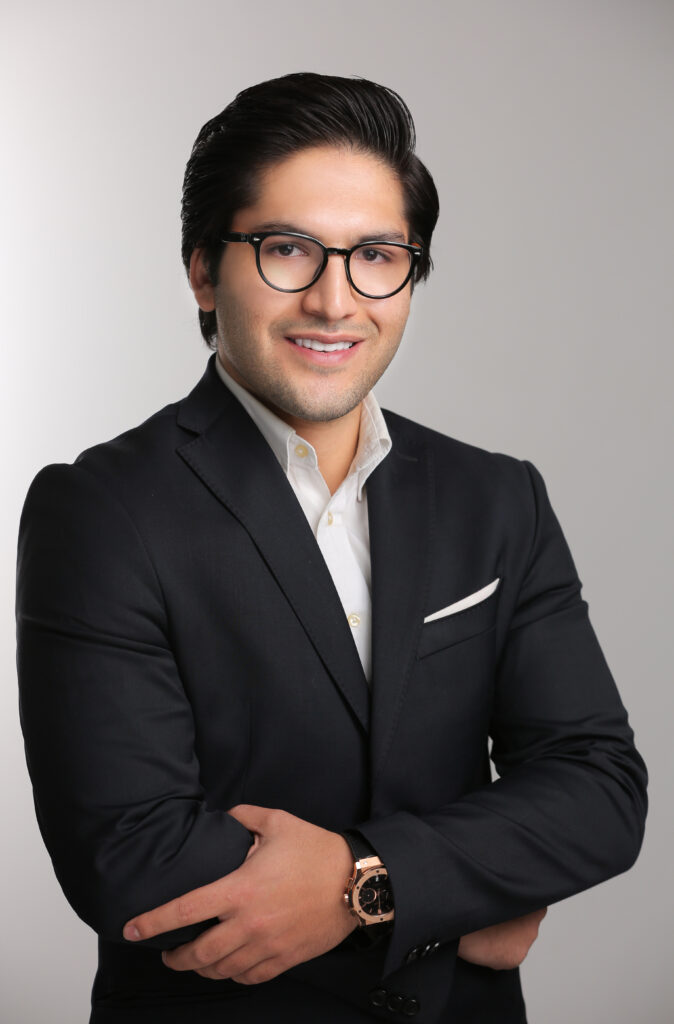2nd Year Master’s Student, The Master of Science in Architecture Design and Research Degree with a concentration in Design and Material Technologies (DMT), A. Alfred Taubman College of Architecture + Urban Planning
Mehrdad is a Master of Science student at Taubman College and the president of the Iranian Graduate Student Association (IGSA). With the help of his board of directors, he worked to ensure the Iranian community and students had community during a very difficult year. Honoring the life of Mahsa Amini, a 22-year-old woman killed by the security forces in Iran, Mehrdad organized a memorial event. In addition, he worked to integrate the community – collaborating with the Persian Student Association (PSA) on two events in support of Iranian members of campus that were attended by many.
At the height of protests in Iran, the Iranian authorities shut down the internet, making it impossible for students to communicate with their families there. Further, they broke into the Sharif University of Technology where many current students and faculty from Iran had once studied. Mehrdad helped to organize Counseling and Psychological Services (CAPS) sessions at which students could share their experiences and receive helpful advice on how to continue their education under stressful circumstances.
Through his efforts, many people across differences and associations at the University of Michigan gathered to support Iranian students, raise awareness of social justice and women’s rights, and build a safe environment for students.
Being your best DEI self: Think of a time when you were at your best at advancing diversity, equity, and inclusion. What happened? Who was there? Why did you feel at your best?
“In my situation, I believe that by organizing an event around the same idea, I am strengthening human basic rights. After Mahsa Amini, a 22-year-old Iranian woman was killed by police security because she wasn’t properly wearing the hijab, thousands of Iranians began to protest for their fundamental human rights. At the University of Michigan, a number of events were organized at the same time to show our support for the Iranian people and our sense of community. At the time, our target society was too far away, yet the message of women’s rights, life, and freedom transcend all geographical boundaries when it comes to mankind. Since my family and friends are in Iran, I feel that I can speak for them to the best of my ability. Throughout these occurrences, I can also support my friends, peers, and the Iranian community at the University of Michigan in feeling secure and together.”
In envisioning the future, how would you describe progress in the realm of diversity, equity, and inclusion? What might it look like?
“Sadly, I can think of quite a few instances where human rights are not being upheld. Iran’s relations with protestors, the war in Ukraine, and the Taliban in Afghanistan. Despite the fact that individuals are still working to promote fairness and inclusion and that these events are happening all over the world, there has been very little progress in getting to a satisfactory position. When considering progress, politics is crucial, thus I’m hoping that all of these efforts will have an impact on politicians’ decisions to make the world a better place to live.”
What does it mean to you to be a recipient of the MLK Spirit Awards?
“Being nominated for this award is a phenomenal opportunity for me. I believe that my efforts to help students have been acknowledged, and this is a great reason to keep up my passionate advocacy for human rights. I’ve tried to follow this Persian poem as a guide throughout my journey.
‘Human beings are members of a whole,
In creation of one essence and soul.
If one member is afflicted with pain,
Other members uneasy will remain.
If you have no sympathy for human pain,
The name of human you cannot retain.
— Saadi‘”

